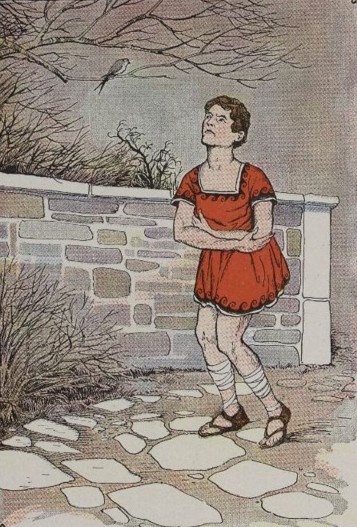PART A_1
Let’s learn vocabulary. Listen and repeat the words and the sentences with your tutor.
PART A_2
| 1. boon | /bun/ |
| -something that is very helpful and improves the quality of life | |
| The advent of technology and digital platforms are boons for the present generation. | |
| 2. companion | /kom-PAN-yon/ |
| -someone you spend a lot of time with or go somewhere with | |
| Long-time friends are really good companions. | |
| 3. fortune | /FO-rtshun/ |
| -the good or bad things that happen to you | |
| Her fortune has been good since she finished her studies. | |
| 4. reputation | /rep-yu-TEY-shen/ |
| -the opinion that people have about someone or something based on their behavior or character in the past | |
| Her reputation has improved since the time she did a benefit concert | |
| 5. scarcely | /SKER-sli/ |
| -only just | |
| With the pandemic, people could scarcely consume nutritious foods. |
PART B_1
Let’s read the story. Please read them aloud, and I will check your pronunciation and intonation.
PART B_2
The Spendthrift and the Swallow

A young fellow, who was very popular among his boon companions as a good spender, quickly wasted his fortune trying to live up to his reputation. Then one fine day in early spring he found himself with not a penny left, and no property save the clothes he wore.
He was to meet some jolly young men that morning, and he was at his wits’ end how to get enough money to keep up appearances. Just then a Swallow flew by, twittering merrily, and the young man, thinking summer had come, hastened off to a clothes dealer, to whom he sold all the clothes he wore down to his very tunic.
A few days later a change in weather brought a severe frost; and the poor swallow and that foolish young man in his light tunic, and with his arms and knees bare, could scarcely keep life in their shivering bodies.
One swallow does not make a summer.
He was to meet some jolly young men that morning, and he was at his wits’ end how to get enough money to keep up appearances. Just then a Swallow flew by, twittering merrily, and the young man, thinking summer had come, hastened off to a clothes dealer, to whom he sold all the clothes he wore down to his very tunic.
A few days later a change in weather brought a severe frost; and the poor swallow and that foolish young man in his light tunic, and with his arms and knees bare, could scarcely keep life in their shivering bodies.
One swallow does not make a summer.
PART C_1
Let’s answer comprehension questions. Please answer them based on the story.
PART C_2
| 1. | On what did the young man spend his money |
| 2. | What happened when he had no money left? |
| 3. | Why did the young man sell even his clothes? |
PART D_1
Let’s discuss the story. Please answer the questions below and express your opinions.
PART D_2
| 1. | What could you say about the young man’s spending just to keep his reputation? |
| 2. | Was he correct to spend too much and leave nothing for himself? Why or why not? |
| 3. | What could have happened if he had been more responsible with his money? |
| 4. | Do you agree with the moral of the story? Why or why not? |
| 5. | Have you been into a situation where this moral could have been helpful? Please share. |
REVIEW AND FEEDBACK
Now, let us review the things that you learned in this lesson.
ではこのレッスンで学んだことを振り返りましょう。
(Please give a short feedback on how your student did on your class.)
| Grammar 文法 |
Pronunciation 発音 | Vocabulary 単語 |
Comprehension 理解 |
|
|---|---|---|---|---|
 GOOD GOOD |
文法の誤りはほとんどなく、完全な文章で話すことができる | ほとんどの単語をはっきりと正しく発音することができる | 習った表現を適切に使うことができる | 文章を理解し、質問に正しく答えることができる |
 FAIR |
文法の誤りはあるが、完全な文章で話すことができる | 発音の練習が必要な言葉がいくつかある | たまにミスはあるが、習った表現を適切に使うことができる | 文章を完全に理解するのは難しく、質問に正しく答えられないときもある |
 POOR |
文章で話すのは難しく、単語だけで話すことができる | 発音の練習が必要である | 習った単語と表現を少しだけ使うことができる | 文章を理解するのは難しく、質問に答えるのは難しい |
Parts of this lesson material are based on:
An eBook from The Project Gutenberg.
This eBook is for the use of anyone anywhere at no cost and with almost no restrictions whatsoever. You may copy it, give it away or re-use it under the terms of the Project Gutenberg License included with this eBook or online at www.gutenberg.org
An eBook from The Project Gutenberg.
This eBook is for the use of anyone anywhere at no cost and with almost no restrictions whatsoever. You may copy it, give it away or re-use it under the terms of the Project Gutenberg License included with this eBook or online at www.gutenberg.org